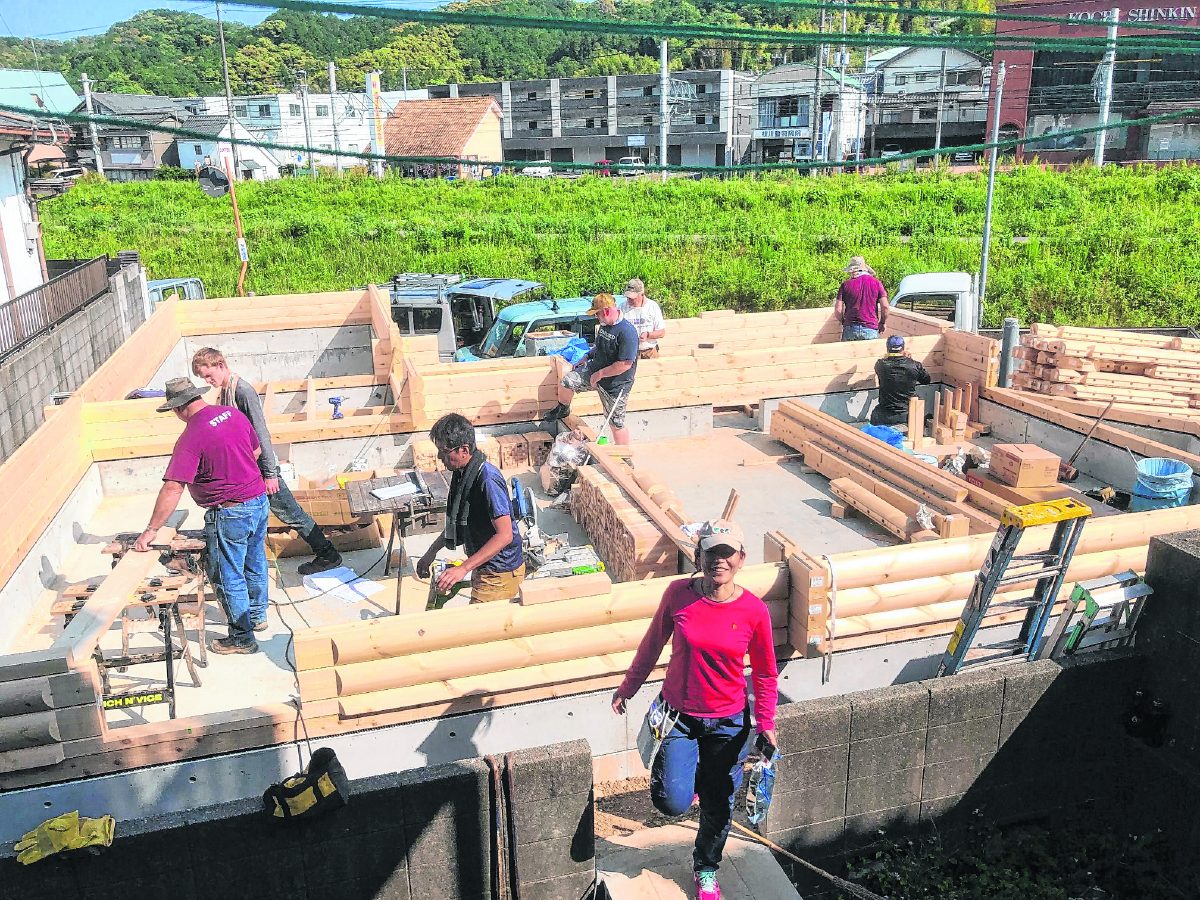A Greenwood-based missionary organization wants to use profits from local home sales to support its staff and future projects.
Men for Missions sends missionaries to about 20 countries each year to help rebuild infrastructure, spread messages of Christianity and help impoverished communities recover after disasters, such as the Haiti earthquake in 2010, said Josh Krumenacher, the organization’s U.S. Ministry Team specialist.
“Men for Missions started in 1954, trying to get the average male interested in mission projects such as prayer teams and building projects,” Krumenacher said. “Our goal is to be in 30 countries over the next five years.”
Habitat for Missions, a separate organization, was founded in 2005 in Marion, with the mission of buying homes, repairing and reselling them, with 90 percent of the profits from those sales going to local missionary organizations, according to the organization’s website.
[sc:text-divider text-divider-title=”Story continues below gallery” ]
Men for Missions operates as a ministry of One Mission Society, also based in Greenwood. Between three and four years ago, Habitat worked with One Mission Society, repairing and selling two Greenwood houses for profits of $33,000 and $38,000. Ninety percent of those profits went to missionaries Greg and Shirley Carlson, employees of One Mission Society who coordinate missionary events and prayer teams and counsel other missionaries. The other 10 percent went back to Habitat for Missions to cover staff payroll and operating expenses for the non-profit, Executive Director Bill Foster said.
While working on those housing repair projects, members of Men for Missions requested Habitat’s help, and a partnership was born. Habitat is now looking for two Greenwood houses to buy and repair, in hopes of supporting Men for Missions, he said.
While Men for Missions has offices not only in the United States, but also in Canada and the United Kingdom, the money from Greenwood home sales would go toward supporting full-time missionaries who might be doing domestic work rather than going overseas, Krumenacher said.
“It’s harder for people in the U.S. to raise their own support, rather than someone who is going to Africa for three years,” Krumenacher said. “This is a really good way to bring in some substantial income for an individual to live and work for a year or two. (Sales from) the first building will be used for a general staff account and for home missionaries working in our U.S. office. If we’re successful, we have projects we want to do in Cambodia and a few other places.”
Doing missionary work in the United States might be perceived as cheaper than doing that work overseas, which might lead to relatively low support for such missions. The U.S. missionary projects will be determined by the Men of Missions board, he said.
Habitat is still looking for people who want to sell their homes, but once it buys a home, it usually takes about six months to repair and then sell it again, Krumenacher said.
Local volunteers who support Habitat’s vision will supply manpower to complete those repairs, Foster said.
“Normally, what we do is becoming aware of a particular missionary that needs support,” Foster said. “That helps us identify a church that believes in them and is passionate about the area of the globe he or she is working in. I make contact with the church advocate on behalf of the missionaries.”
In this case, the church advocate was Men for Missions. When Habitat for Missions selects a home, its administration will try and recruit volunteers from local churches. During the project with One Mission Society, Habitat partnered with the Community Church of Greenwood for volunteers who helped repair the homes, Krumenacher said.
Habitat has done home repair projects in Indiana, Tennessee, Florida, South Carolina, New York and Michigan. It averages a 25 to 31 percent profit on each house, Foster said.
Through continued funding, Men for Missions can continue to achieve its goal of missionaries carrying out their purpose in life, said Bill Evans, U.S. national director of Men for Missions.
“Our primary objective is to challenge men and their families to be who God created them to be. In order to do that we need to grow the number of people at Men for Missions,” Evans said.
“We’re constantly looking to expand. That’s our vision and plan.”
[sc:pullout-title pullout-title=”At issue” ][sc:pullout-text-begin]
Habitat for Missions is looking for Greenwood residents who are interested in selling their homes to support missionaries from Men for Missions. People who are interested can contact Habitat for Missions Executive Director Bill Foster by calling 765-506-6733.
[sc:pullout-text-end]





